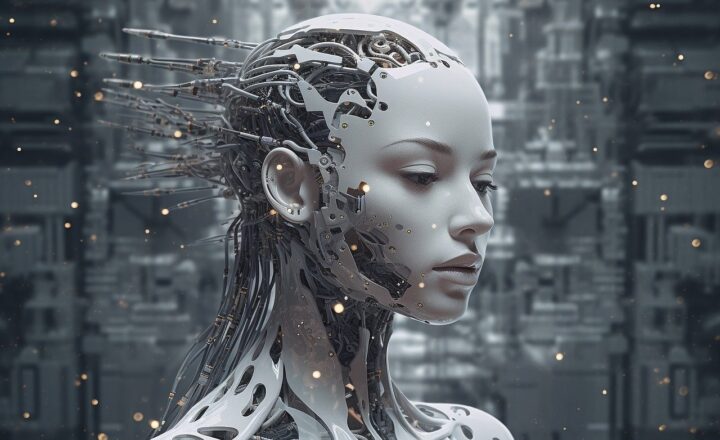From Virtual Assistants to Self-Driving Cars: Everyday Applications of Artificial Intelligence
November 11, 2024

Artificial Intelligence (AI) has rapidly evolved from being a complex theoretical concept to a vital aspect of our daily lives. AI technology has increasingly integrated into various sectors, transforming how we work, interact, and navigate our world. In this comprehensive article, we will explore how AI permeates everyday applications, from virtual assistants to self-driving cars, and examine both the benefits and challenges associated with these advancements.
1. Understanding Artificial Intelligence
Artificial Intelligence refers to the simulation of human intelligence processes by systems and machines. These processes include learning (the ability to acquire and apply knowledge), reasoning (the ability to solve problems using logic), and self-correction. Here are the core components that define AI:
- Machine Learning: A subset of AI where software applications gain the ability to improve their accuracy over time without human intervention, based on previous inputs. This includes algorithms that help in predicting outcomes based on data.
- Natural Language Processing (NLP): This allows machines to understand and respond to human language in a valuable way, making interaction with technology more intuitive.
- Computer Vision: This technology enables machines to interpret and make decisions based on visual data from the world, allowing them to ‘see’ and understand their environment.
Understanding these components helps us appreciate how AI applications have become prevalent in our everyday lives. Let’s delve into specific use cases of AI that many people now leverage daily.
2. Virtual Assistants: Your AI-Powered Helpers
One of the most common applications of AI is in virtual assistants, which help users perform a variety of tasks using voice commands. Popular examples include Apple’s Siri, Amazon’s Alexa, and Google Assistant. Here’s how they simplify our daily routines:
- Scheduling and Reminders: Virtual assistants can manage your calendar, set reminders for appointments, and send alerts when it’s time to leave for an event based on real-time traffic data.
- Information Retrieval: Users can obtain answers to questions, ranging from trivia to weather updates, thereby saving time on searching the internet manually.
- Smart Home Control: They can control smart home devices such as lights, thermostats, and security systems, creating a seamless and automated living environment.
These assistants utilize NLP and machine learning capabilities to adapt and personalize responses, making them incredibly user-friendly.
3. Personalized Recommendations: AI in Retail and Entertainment
AI is instrumental in enhancing the user experience through personalized recommendations. Platforms like Netflix, Amazon, and Spotify utilize sophisticated algorithms to analyze user behavior and preferences to suggest content. Here’s how this shapes our consumption:
- Product Recommendations: E-commerce sites analyze your past purchases and browsing history to suggest products you may be interested in, boosting sales through data-driven insights.
- Content Suggestions: Streaming platforms curate recommendations based on your viewing habits, making it easier for users to discover new shows and movies aligned with their interests.
- Targeted Marketing: Companies use AI to tailor marketing messages and advertisements based on user data, increasing engagement and conversion rates.
The integration of AI not only enhances customer satisfaction but also significantly drives business efficiency through targeted communication.
4. Healthcare: Revolutionizing Patient Care
AI is making notable impacts in the healthcare industry by improving patient care and operational efficiencies. Here are key ways it is transforming the sector:
- Diagnostic Accuracy: AI algorithms can analyze medical images and identify diseases with high accuracy. Tools like IBM Watson Health assist doctors in diagnosing conditions by analyzing vast databases of medical literature and patient data.
- Personalized Treatment Plans: AI systems enable healthcare providers to create tailored treatment plans based on patient genetics and historical data, enhancing the effectiveness of therapies.
- Virtual Health Assistants: Patients benefit from AI chatbots that can answer health questions, monitor symptoms, and guide them to appropriate care options effectively.
The ability of AI to process large volumes of data rapidly helps improve decision-making and patient outcomes in the healthcare sector.
5. Transportation: The Future is Autonomous
Self-driving cars have emerged as a hallmark of AI technology, showcasing its potential in transportation. Companies like Tesla and Waymo are leading the charge in developing vehicles that can operate without human intervention. Let’s explore how AI is revolutionizing transportation:
- Enhanced Safety: AI systems integrate multiple sensors and cameras to enable vehicles to detect obstacles, pedestrians, and other vehicles, significantly reducing accident rates caused by human error.
- Traffic Optimization: AI can analyze real-time traffic conditions to optimize routes and reduce congestion, leading to more efficient travel times.
- Accessibility: Autonomous vehicles promise to provide increased mobility for individuals unable to drive, such as the elderly or disabled, thereby enhancing their independence and quality of life.
Although self-driving technology is still being tested and regulated, its potential to reshape urban mobility is undeniable.
6. Challenges and Ethical Considerations
Despite the numerous advantages AI brings, it is essential to address the challenges and ethical implications associated with its use:
- Privacy Concerns: The collection and analysis of vast amounts of personal data can lead to significant privacy risks if mishandled, making data protection a priority for developers and users alike.
- Job Displacement: As AI automates various tasks, concerns arise regarding job losses in sectors like manufacturing and service, necessitating strategic workforce planning and reskilling programs.
- Bias and Fairness: Algorithms can inadvertently perpetuate biases present in datasets, leading to unfair or discriminatory outcomes. Developers must strive to create unbiased AI systems and monitor their impacts continuously.
Addressing these challenges will be essential in ensuring that AI can be harnessed ethically and responsibly.
Conclusion
Artificial Intelligence continues to shape our everyday lives in profound ways, enhancing efficiency and convenience across diverse sectors. From virtual assistants managing our tasks to self-driving cars revolutionizing transportation, it is clear that AI will be an integral part of our future. However, society must remain vigilant in addressing the ethical implications and challenges that arise with AI’s advancement. By navigating this landscape responsibly, we can harness the full potential of AI to create a smarter, more connected world while minimizing risks associated with its deployment.







